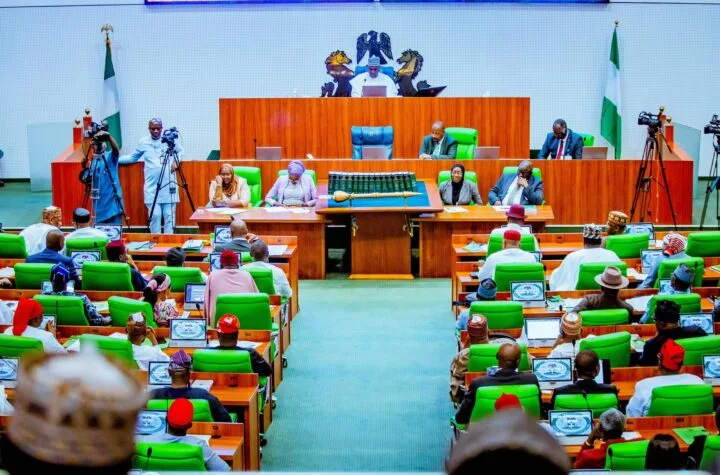Nigerian lawmakers are pushing for a major change in the governance of oil and gas resources. A bill before the House of Representatives seeks to remove the federal government’s exclusive control over these resources and transfer them to the concurrent legislative list. This means state governments could have a say in how oil and gas are managed within their territories.
The bill, titled “A Bill for an Act to Alter the Provisions of the Constitution of the Federal Republic of Nigeria, 1999,” has passed its second reading in the House. The Deputy Speaker, Mr Benjamin Kalu, presided over the session where the bill was debated.
Join our WhatsApp ChannelREAD ALSO: Lawmakers Pass Tax Reform Bills After Months Of Debate
What the Bill Proposes
The proposed legislation aims to decentralise the governance of natural resources. If passed, it would shift the control of mines, minerals, oil fields, oil mining, geological surveys, and natural gas from the Exclusive Legislative List to the Concurrent Legislative List. This would allow both the federal and state governments to share power over these resources.
The bill is sponsored by key lawmakers, including the Speaker of the House, Hon. Abbas Tajudeen; the House Minority Leader, Kingsley Chinda; Gaza Jonathan Gbefwi; and Ikeagwuonu Onyinye Ugochinyere.
Other Bills on Devolution of Powers
Apart from the oil and gas bill, lawmakers are also considering seven other bills that seek to alter the Second Schedule of the Constitution. These bills propose changes in areas such as fingerprint identification, criminal records, road tolls, and the construction of certain roads. If passed, these matters would also be moved from the Exclusive Legislative List to the Concurrent Legislative List.
Another bill seeks to transfer tourism from the Exclusive Legislative List to the Concurrent Legislative List. Lawmakers believe this would allow states to have more control over tourism development within their regions.
Water Governance and Local Government Autonomy
One of the bills under consideration aims to give states more control over water resources. It proposes moving water management for domestic, commercial, industrial, irrigation, and power uses to the Concurrent Legislative List. This would allow state governments to manage water resources more effectively.
Lawmakers are also pushing for financial autonomy for local governments. A bill seeks to create an independent consolidated local government council account, ensuring that funds meant for local governments are not controlled by state governments.
Implications of the Proposed Changes
If the oil and gas bill and other devolution bills become law, Nigeria’s governance structure could change significantly. State governments would have greater control over their natural resources, leading to potential economic benefits for resource-rich states. However, the federal government’s reduced control could lead to new challenges in revenue sharing and regulatory oversight.
Lawmakers argue that these changes are necessary to promote efficiency and development at the state level. They believe that decentralising governance will lead to better resource management and economic growth across the country.
The bill is now with the House Committee on the Review of the 1999 Constitution for further scrutiny. As the legislative process continues, lawmakers will debate the potential impact of these changes on Nigeria’s federal structure.
Emmanuel Ochayi is a journalist. He is a graduate of the University of Lagos, School of first choice and the nations pride. Emmanuel is keen on exploring writing angles in different areas, including Business, climate change, politics, Education, and others.
- Emmanuel Ochayihttps://www.primebusiness.africa/author/ochayi/
- Emmanuel Ochayihttps://www.primebusiness.africa/author/ochayi/
- Emmanuel Ochayihttps://www.primebusiness.africa/author/ochayi/
- Emmanuel Ochayihttps://www.primebusiness.africa/author/ochayi/

















